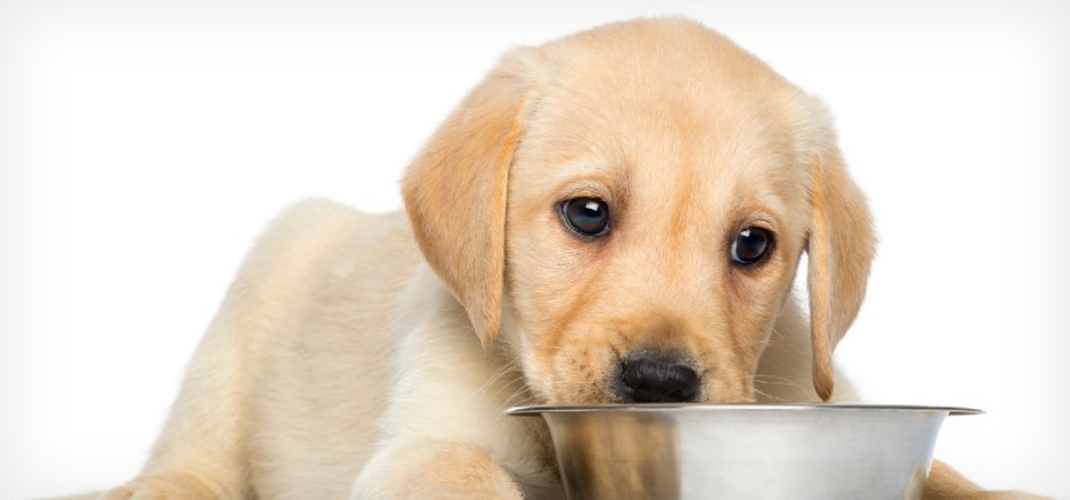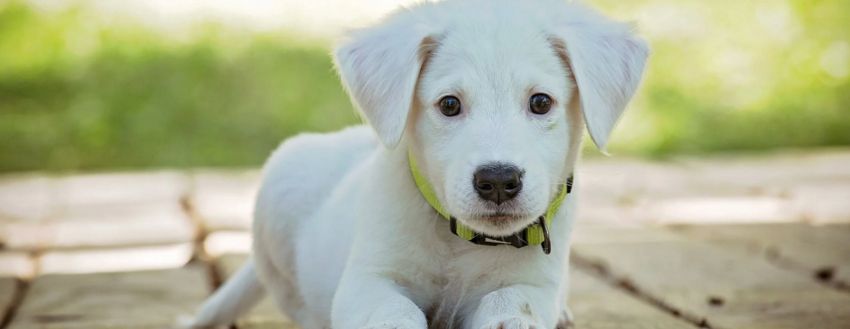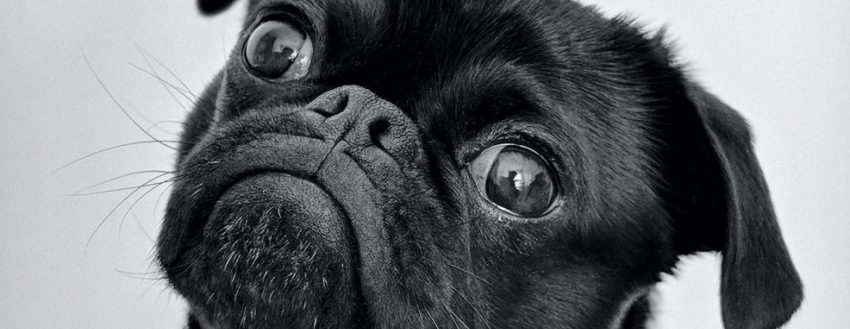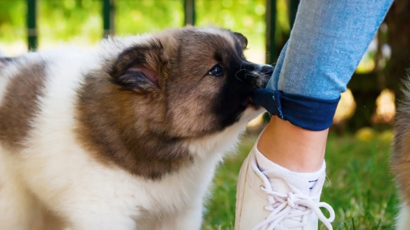How to Get a Fussy Puppy to Eat

Many puppy owners search for ways for getting a new puppy to eat their food. It can be worrying when puppies seem disinterested in the food they are offered, especially when they are first settling in.
What's the Problem?
If your puppy isn’t eating all of the food offered, there are 3 main possibilities:
- Your puppy is already receiving enough food for adequate growth
- Your puppy’s appetite could be reduced due to a medical problem
- Your puppy is just a bit on the fussy side
Getting a new puppy to eat is vital for growth, but it is important to look at the underlying reason as to why he or she is not finishing the food.
Your Puppy may Already have Adequate Nutrition for Growth
The nutritional guidelines set out by premium pet food manufacturers, such as Black Hawk, are based on the average nutritional requirements for a puppy of a certain weight and size, but there is some individual variation due to genetics and metabolic rate.

The best way to determine if your puppy is receiving adequate nutrition is to look at the body condition score. At regular health checks, your vet will be able to determine if your puppy is receiving adequate nutrition.
Generally, your puppy should have a slightly narrower waist than the rib-cage, the skeleton should have some muscle coverage and the individual rib bones should not be visible.
Reduced Appetite Due to a Medical Problem
If your puppy is thin with obvious bony protrusion and poor muscle development then undernutrition is a possible cause, but there could be medical reasons too.
One common problem that needs to be ruled out is gastrointestinal parasites such as coccidiosis, gastrointestinal worms and giardia. Sometimes, but not always, these problems are coupled with diarrhoea. A faecal flotation test can be carried out by your veterinarian to determine if gastrointestinal parasites are a problem in your pet. A poo sample is collected which is either tested at the vet clinic itself, or a laboratory and results are normally available within 24 hours.
If your puppy is not energetic and seems lethargic between sleeps, then it is important to have your vet assess him or her for any other issues causing poor appetite. There are some infectious diseases, congenital problems and metabolic issues which can cause a poor appetite in puppies and this needs to be carefully investigated. Further testing to rule out a medical issue may involve infectious disease screening, blood tests, imaging (x-rays/ultrasound) and urine testing.
How to Get a Fussy Puppy to Eat
When you first bring home your new puppy, unless advised otherwise by your vet, it’s a good idea to continue with the diet that the puppy is currently on, before slowly transitioning onto a premium puppy diet such as Black Hawk.

Arriving at a new home without your mum and siblings can be stressful if that is all your puppy has known so far.
Stress can affect appetite, so if your vet has assessed your puppy as healthy, allow 1-2 days of settling in before a steady feeding routine is established.
Make sure that food is offered in a safe, quiet and secure location, so that your puppy is set up for success from the start. Having strict times where food is only offered for 10 minutes at a time can cause anxiety for a young puppy who is trying to adjust to the new surroundings.
Be flexible and work out your puppy’s preferences for eating times and then establish a suitable routine.
Sometimes the puppy is being fussy at meal time because too many treats have been offered leading up to the meal as positive reinforcement treats. Be sure to make sure that treats do not make up more than 10% of the diet, or you will find appetite is affected, which can then affect the nutritional intake. So, remember to feed your puppy when he or she is hungry.
Additional Tips on Encouraging our Puppy to Eat
Tasty yet healthy ‘toppers’, such as a small amount of cooked shredded chicken breast, can be added to your puppy’s kibble to help stimulate eating initially for a fussy pup. Remember that the majority of your puppy’s food should be a balanced premium food, so don’t overdo it.
Most importantly, eating should be an enjoyable time for both you and your puppy and great nutrition helps to establish a strong bond and trust that will last a life-time. Once you begin to learn what your puppy’s normal eating habits are, it is fairly obvious when he or she has a reduced appetite.
Puppy’s can become dehydrated and develop a low blood sugar faster than adult dogs, so be sure to seek veterinary attention if your puppy seems unwell.



